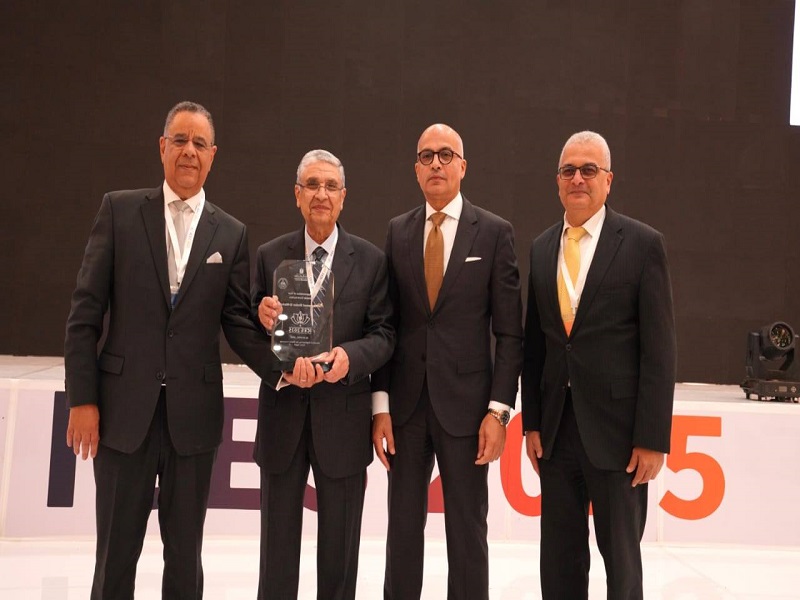The launch of the Second International Conference of the Faculty of Engineering
Prof. Mustafa Refaat, Secretary General of the Supreme Council of Universities, on behalf of Prof. Mohamed Ayman Ashour, Minister of Higher Education and Scientific Research, Prof. Mohamed Diaa Zain El-Abedeen, President of Ain Shams University, and Prof. Omar El Husseiny, Dean of the Faculty of Engineering, inaugurated the Second International Conference of the Faculty of Engineering, Ain Shams University, entitled (Energy Systems: Smart and Sustainable Solutions), which was held under the auspices of Prof. Mohamed Ayman Ashour, Minister of Higher Education and Scientific Research.
Prof. Mustafa Refaat, Secretary of the Supreme Council of Universities, speaking on behalf of the Minister of Higher Education and Scientific Research, Prof. Mohamed Ayman Ashour, explained that since the dawn of civilization, energy has been a major driver of human progress and a decisive factor in shaping the contours of societies. Today, energy is no longer just a resource; it has become an existential issue that affects our present and the future of our generations. It is closely linked to issues of sustainability, climate change, and rapid technological progress.
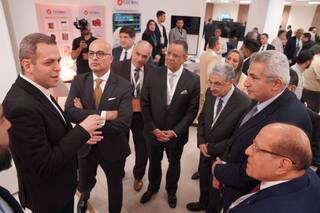 |
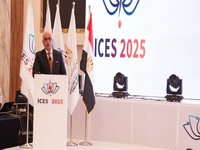 |
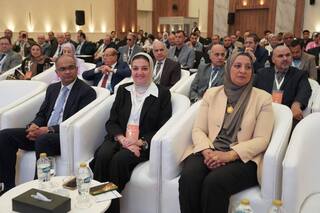 |
||
His Excellency added that there has been an urgent need to reformulate the concepts of planning, operation, and efficiency of energy systems. It is no longer sufficient to build more stations or expand networks. Rather, a future vision requires long-term strategic planning, taking into account the diversity of energy sources, security of supply, environmental protection, and the efficient and effective operation of these systems. This is coupled with the need to ensure continuity, reduce resource loss, and achieve both economic and environmental feasibility.
He highlighted the growing role of digital technologies, where data analysis and calculations, the use of modern technologies, data collection and analysis, and the investment in artificial intelligence technologies open up broad prospects for improving network performance, predicting failures before they occur, and rationalizing energy consumption. This contributes to building smarter, more resilient, and more efficient energy systems.
He also pointed out that assessing the sustainability of energy systems enables us to build energy systems that support growth without depleting the Earth’s resources or harming the ecological balance. This is in addition to generating energy without carbon emissions. This can be achieved through expanding the use of clean energy sources, adopting carbon capture and storage technologies, and transitioning to a low-carbon economy.
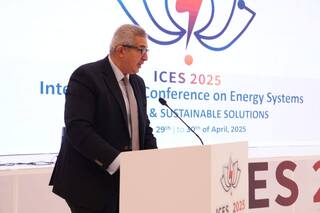 |
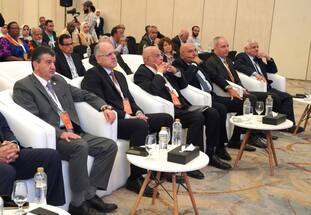 |
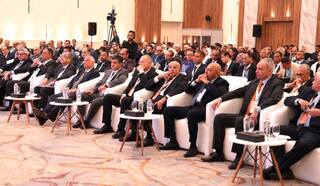 |
||
The Secretary-General of the Supreme Council of Universities added that the Ministry of Higher Education and Scientific Research has placed climate change at the top of its priorities, with utmost attention and global commitment, and has integrated climate change into all sectors of the Egyptian state. The issue of climate change has received the attention of universities, centers, institutes, and research bodies. Directives have also been given to establish a Green Fund to adapt to climate change, conserve nature, support the development of rural and coastal areas, preserve natural heritage and archaeological sites, and encourage green innovation to mitigate the effects of climate change. The Ministry also prioritizes green infrastructure to enhance the resilience of urban areas in the face of climate change. The Supreme Council of Egyptian Universities also plays a role in coordinating between universities, research centers, institutes, and specialized councils to develop strategies to direct science, technology, and innovation towards addressing climate change. The "Best Environmentally Friendly University in Egypt" competition was launched to present inspiring and successful models from universities, showcase best practices implemented with dedication and innovation to achieve the transition to an environmentally friendly university, benefit from the expertise of leading universities in this field, and identify innovations adopted to achieve sustainability.
Noting the importance of advanced materials and construction technology, innovations in smart materials, modern insulation technologies, and energy-efficient transportation designs, to reduce energy consumption and achieve carbon neutrality goals, and integrate smart engineering and environmental solutions into the design and planning of public and private buildings and facilities, as well as smart city planning.
He also highlighted the interconnectedness between water, food, and energy, which forms the basis for sustainable life and development. He emphasized the need for water desalination and the search for innovative solutions to ensure water, food, and energy security.
Prof. Mohamed Diaa Zain El-Abedeen, President of Ain Shams University, emphasized that this conference comes at a crucial time, as the world is witnessing radical transformations in the concepts and uses of energy. The shift to renewable energy is no longer just an option, but an absolute necessity to confront growing climate challenges and ensure a sustainable future for future generations. Ain Shams University recognizes the vital role academic and research institutions play in supporting this transformation. Therefore, we have made promoting scientific research in various fields of renewable energy, from solar and wind energy to bioenergy and green hydrogen, a strategic priority for the university. We are also working hard to develop curricula to keep pace with the latest developments in this field and to graduate qualified cadres capable of leading this transformation in the future.
His Excellency added that this conference represents an important platform for exchanging expertise and knowledge among researchers, academics, and experts from around the world, expressing his confidence that the rich discussions and distinguished presentations it will witness will contribute to finding innovative solutions and practical, applicable recommendations that will serve our national, regional, and global efforts in the field of renewable energy.
Prof. Omar El-Husseini, Dean of the Faculty and Chairman of the Conference, pointed out that holding the conference stems from a firm belief in the importance of holding this type of scientific conference, based on the pivotal role played by scientific research in achieving the sustainable development goals of our society and our beloved country. He pointed out that this conference comes within the objectives of the Faculty and its strategic plan and is consistent with the plan of the University and the Ministry in this field and in keeping with the Egyptian State Vision 2030, which aims to build a competitive economy based on knowledge and innovation and to achieve sustainable development that takes into account the inter-dimensional dimension and justice.
This conference comes at a very important time, in light of the radical transformations the world is witnessing in energy policies, and the accelerating trend towards rationalizing energy consumption and maximizing the use of clean and sustainable sources. Renewable energy is today one of the most important pillars upon which development strategies in both developed and developing countries are based. He pointed out that Egypt, with its conscious leadership and ambitious vision, places this file at the top of its priorities. He added that from this standpoint, universities, especially engineering colleges, have a pivotal role in supporting this national trend through applied scientific research, multidisciplinary cooperation, and preparing cadres capable of leading the system of rationalizing energy consumption and the transition to renewable energy.
He pointed out that this conference is not only about exchanging knowledge, but also about a shared endeavor to provide realistic and effective solutions that enhance the country’s ability to utilize its natural resources and achieve energy security.
He added that the Faculty of Engineering at Ain Shams University has, in recent years, in line with the global trend in this field, adopted the principle of an interdisciplinary perspective in engineering education, learning, and scientific research systems, given its utmost importance in generating new ideas and innovations and creating new opportunities for creativity and applied scientific research.
He added that this conference embodies interdisciplinary thinking by bringing together all engineering disciplines through eight axes of scientific and applied research in the field of energy systems. It also brings together a group of the best scientists in Egypt and the world in various fields of design, development, and management of energy systems, with their real and practical experience in this field, to present their valuable theses as keynote speakers at the conference.
Prof. Omar Al-Husseini emphasized that the exchange of ideas, visions, and knowledge during the conference will enrich discussions and open new horizons for cooperation and partnership between academia and industry to develop innovative solutions to the energy and climate challenges facing our world today and in the future.
It is worth noting that the conference includes 53 published scientific research papers from 6 different countries in 5 continents out of 16 papers submitted to the conference. The conference includes 140 researchers, noting that the number of research papers from local universities represents 80% and from international universities 20%. The best research papers will be selected to be published in the Ain Shams University Engineering Journal, ranked Q1, which is considered one of the best 8% of engineering scientific journals in the world. In addition, the student competition that was launched through the conference website for students and recent graduates for the best ideas and innovations in the field of energy systems. 93 teams applied in the first phase, which were filtered to 28 teams in the second phase, then 8 teams in the final phase. Prizes will be awarded to the first three teams.
The opening ceremony of the conference was attended by Prof. Moqbel Shaker, former Minister of Electricity, Prof. Ahmed Zaki Badr, former Minister of Local Development, Prof. Ghada Farouk, Vice President for Community Service and Environmental Development, Prof. Amani Osama, Vice President for Postgraduate Studies and Research, a group of deans, vice deans of the faculty, and a group of professors from the faculties of engineering.


.svg)

